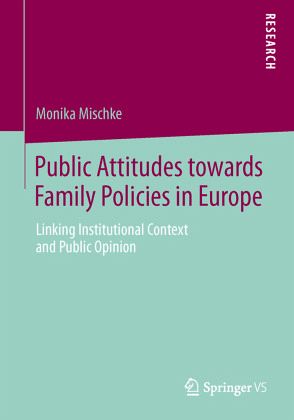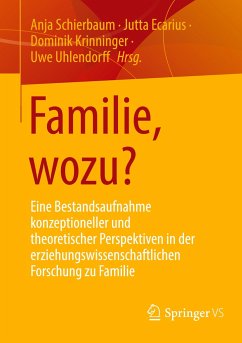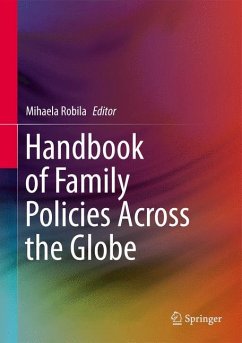
Public Attitudes toward Family Policies in Europe
Linking Institutional Context and Public Opinion

PAYBACK Punkte
19 °P sammeln!
Family-policy variation in Europe is still enormous and there is very limited knowledge about the publics' attitudes toward family-policy measures in a comparative perspective. This book addresses this research gap by combing a profound analysis of existing family-policy measures with a thorough analysis of public attitudes. Based on institutional theory, which argues that institutions structure the processes of orientation, the empirical analyses shed light on the relationship between the current family-policy setup, the social context, and public attitudes toward particular family-policy mea...
Family-policy variation in Europe is still enormous and there is very limited knowledge about the publics' attitudes toward family-policy measures in a comparative perspective. This book addresses this research gap by combing a profound analysis of existing family-policy measures with a thorough analysis of public attitudes. Based on institutional theory, which argues that institutions structure the processes of orientation, the empirical analyses shed light on the relationship between the current family-policy setup, the social context, and public attitudes toward particular family-policy measures in 12 countries of the European Union. The results demonstrate that the social context needs to be taken into account in order to improve our understanding of attitudinal variation among different countries and family-policy contexts. Moreover, this book points out that only few patterns of social polarization are quasi universal whereas many others are specific to individual countriesor certain groups of countries.














